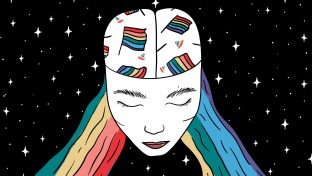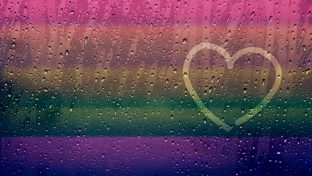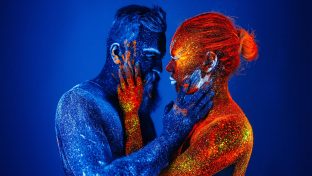For example, men aren’t generally expected to wear dresses. This isn’t because they can’t or shouldn’t, and there isn’t anything inherently wrong with them doing so. However, it goes against societal norms of what is considered masculine.
My Struggle With Lesbian Loneliness In A Heterosexual World
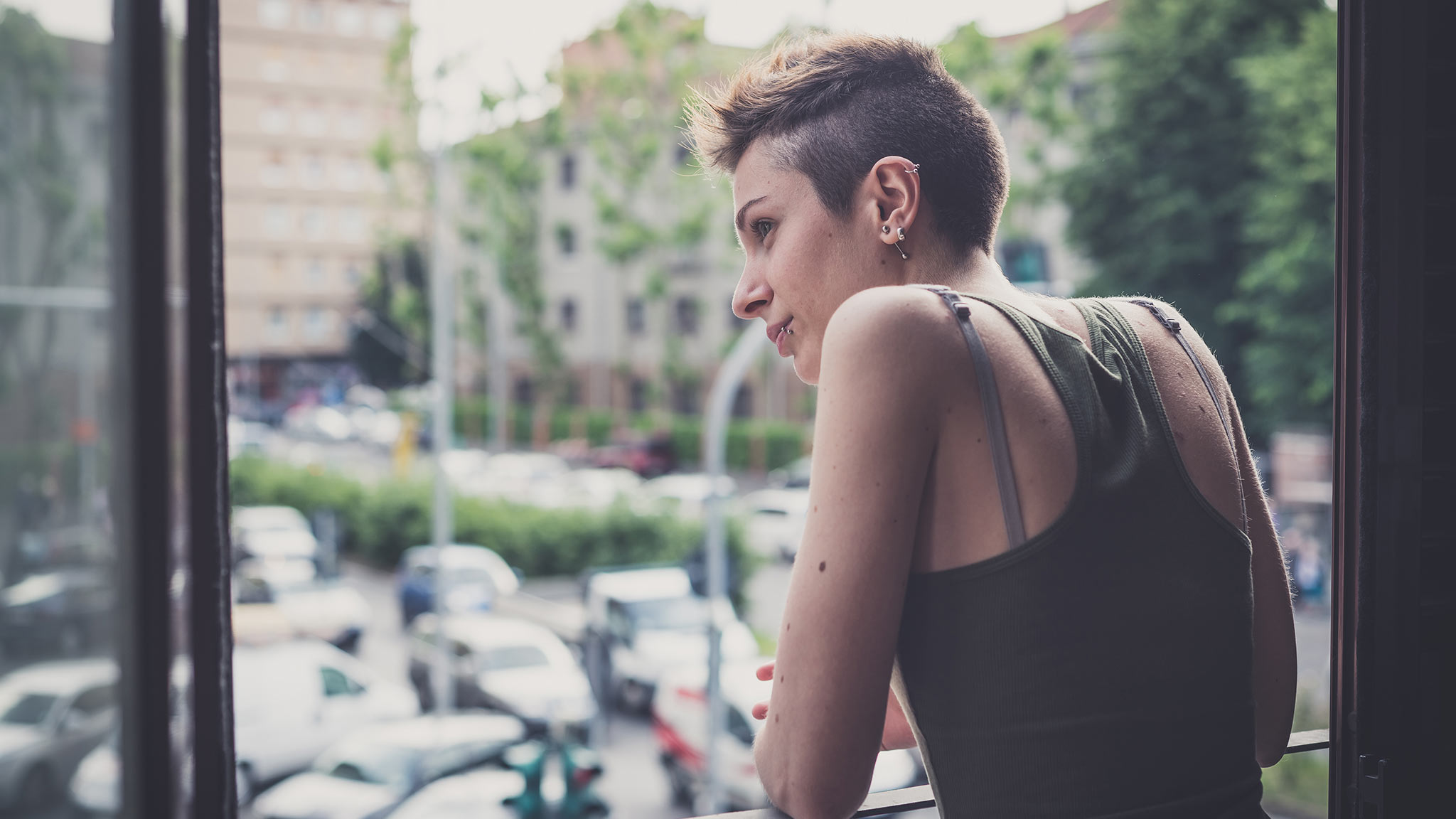
Why are lesbians of all ages more likely to be lonely compared to straight women — and why have so few people heard of lesbian loneliness?
- Trying to ignore your sexual preferences, feeling “wrong” for not being “normal,” and coming out are a few common reasons why lesbians might feel lonely — especially if they lack a social support network.
- Many lesbians have been told before that their sexuality could or should be “changed,” and this, in addition to real concerns about being harmed, can cause gay women to hide their sexuality and feel isolated.
- Though there are many reasons why lesbians feel lonely, creating a network of supportive people and learning to accept and love yourself can help you feel happier and less alone.
Struggling with loneliness or having a mental health crisis?
- Suicide Prevention Lifeline: 1-800-273-TALK (8255); Deaf or hard of hearing dial 711 before the number or connect via online chat
I was in my twenties the first time I saw two women kiss one another.
Standing in a gorgeous church illuminated by a kaleidoscope of stained glass, they expressed their feelings so freely and I was immediately overcome with emotion — and hope for my own future.
I was there to hear one of my favorite authors and activists, Glennon Doyle, speak.
The talk wasn’t about her sexuality, nor has Glennon ever specifically identified herself as a lesbian. Instead, the interactive discussion focused on connecting with others in a world that feels overwhelming.
That said, Glennon’s love for her wife, who was there in support, was more than evident throughout the event.
Seeing two women whom I admired sharing a moment of love and tenderness made me aware of many things all at once.
I took note of how rarely I had seen relationships like this represented in the media, much less in the real world.
And I realized that I had never been to a church that so openly supported — not just tolerated — lesbians and other queer people.
As I stood there in that old brick church, I was struck by the normalcy of their relationship and it was one of the most beautiful things I’d ever seen.
Although I was happy and proud, it forced me to acknowledge an undercurrent of loneliness deep inside myself.
After all, I understood that the world wouldn’t always be as kind and loving as the people in that particular church, and connecting with other lesbian and queer women isn’t easy.
Over time, I began to realize that lesbian loneliness is pretty common and I’m not as alone as I had once thought.
Why Do Lesbians Often Feel Lonely?
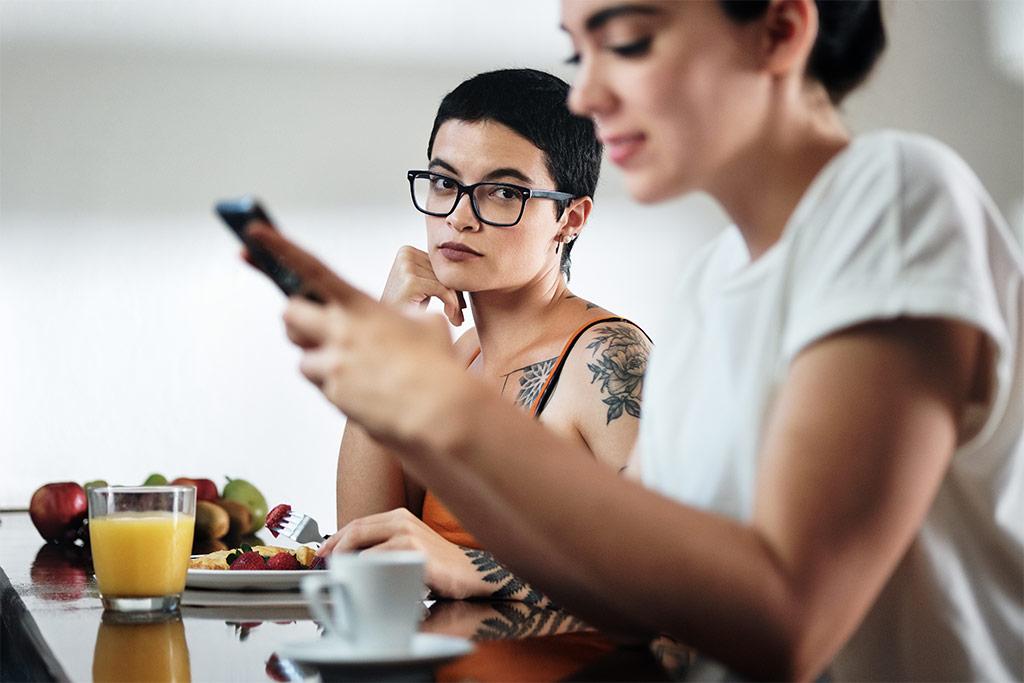
Many girls grow up hearing stories, watching movies, and reading books about women falling in love with a man and living happily ever after.
For this reason, being female and realizing that you’re not attracted to men can bring up feelings of uncertainty and loneliness.
Queer is an umbrella term that refers to anyone who isn’t heterosexual and/or who doesn’t identify as with their biological sex. Formerly a slur, the word has been reclaimed by many who identify as queer.
Though studies suggest that queer people feel loneliness more often than non-queer individuals, the particular issue of lesbian loneliness is often overlooked — even though it is surprisingly common.
A major reason why lesbians feel lonely is that many women are told that being attracted to men is the norm.
Personally, I internalized this belief so much that it took me years to even recognize my romantic feelings toward women.
It turns out that my experience isn’t uncommon.
Bri McCarroll, a licensed couples therapist in Massachusetts, spent years during her adolescence and early adulthood trying to pretend that her attraction to women wasn’t real. She tells me:
“I tried to be ‘normal’, even though I would feel nauseous when I kissed boys. I continued to try to convince myself to be straight until I was 21 or so. I dated men, I had sex with them. I wanted to be straight, as I didn’t want to be ‘hated’ for who I was.”
As a whole, lesbians tend to realize their sexual orientation later than bisexual men and women, or gay men.
Questioning your sexuality or trying to ignore it, especially for an extended period, typically provokes loneliness.
When you finally come to terms with your sexuality, however, your feelings of stress and loneliness don’t necessarily fade away.
Though most queer people experience reduced stress levels over the long-term after coming out, the anticipation and fear felt before and during the process can cause lesbians to feel lonely.
Clinical psychologist Dr. Carla Manly explains that the amount of stress and loneliness lesbians feel when coming out can vary.
“The factors of internalized stigma, presence of a partner, degree of social support, and general social network size come into play during the course of [coming out],” Dr. Manly explains.
“A lesbian who has many caring, accepting LGBTQ friends in her social circle may feel very safe and loved when she comes out, whereas another woman without that level of support and acceptance may go through an intense period of loneliness and isolation.”
Defying expectations about your sexuality, including your own, can be scary.
How Does Lesbian Loneliness Differ From Other Types Of Queer Loneliness?
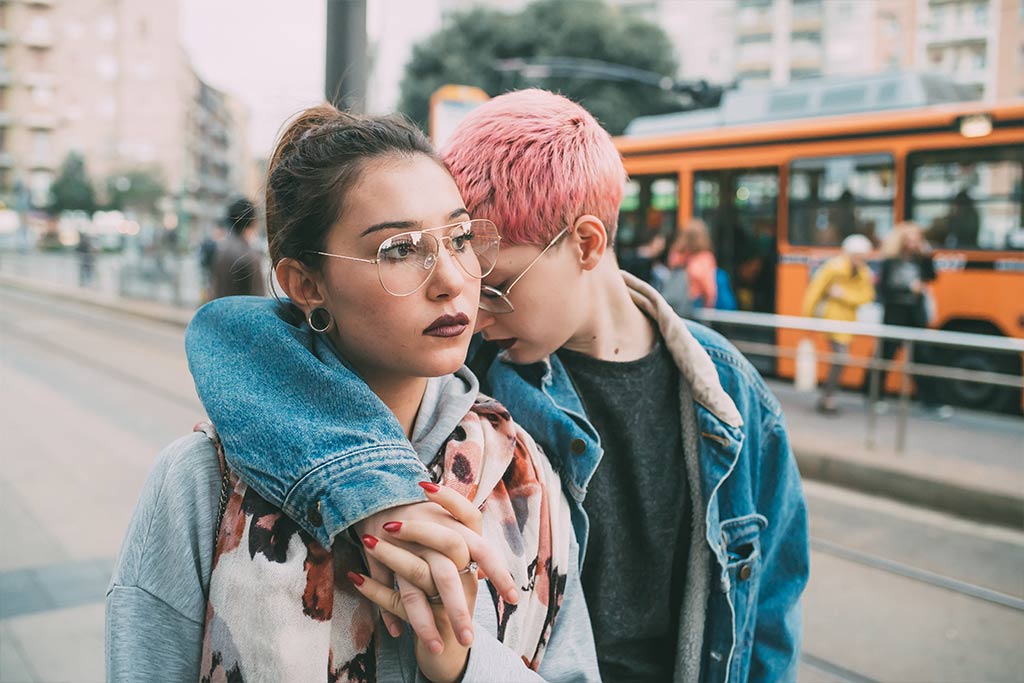
If you’re a lesbian, your relationship with men is very different from those they share with heterosexual women.
Whether you’re single or in a relationship, your attraction is not centered around men, nor is your gender performance.
Lesbians don’t need men to think they’re pretty or interesting, at least not on a romantic or sexual level, because it isn’t men they want to attract.
Some men, however, have difficulty understanding that not all women are attracted to men.
Many lesbians have had to listen to men suggest that they “just haven’t met the right man yet,” or that they can “change” their sexuality by sleeping with them.
Queer women are met with dismissal and annoyance when they try to explain that it isn’t a matter of finding the “right” man because they’re just not attracted to them in that way.
In addition to finding these comments tiresome and disrespectful, having people constantly question your gender identity or sexuality can make you feel incredibly lonely.
Femme lesbians — women who generally appear “traditionally” feminine — often have their identities challenged, though it doesn’t always come from strangers.
For Elizabeth, a writer and editor who identifies as a lesbian, it took time to understand her attraction to women, especially because she was told that she didn’t “look” like a queer woman. She tells me:
“I fully realized I was romantically and sexually attracted to women when I was 19, but I had feelings for other girls that I kind of convinced myself I didn’t have a lot earlier than that.
I started really questioning my sexuality when I was 14. Unfortunately, because I was femme, my mother told me that I was just confused because I didn’t fit the mold of what she thought a lesbian looked like. In turn, I spent a lot of years telling myself that, too.”
While femme lesbians are often told they don’t “look” like a lesbian, butch lesbians — women who usually appear more masculine — are sometimes told that they’re pretending to be men.
Comedian Kelli Dunham identifies as a butch lesbian.
Though she has never been told that she doesn’t “look like a lesbian,” she has dealt with people misunderstanding her gender performance and sexuality.
“Because I’m butch, no one ever says ‘OMG I can’t believe you’re gay!’” she admits. “Men are more likely to tell me that I’ll ‘never be a real man’ even though that’s not at all something I’m interested in.”
While some people may suggest lesbians can change their sexuality or that they all have a certain “look,” the fetishization of lesbians is also common.
Being objectified generally makes women feel uncomfortable, but in some instances, it can also be dangerous — like when two women who were dating refused to kiss on a bus in London and were then assaulted.
Unfortunately, expressing your feelings towards another woman can be especially dangerous for transgender women, who are at greater risk of violence compared to other members of the queer community.
As a result of insensitive comments from men and women or being fetishized by the same, hiding your attraction to women may feel like an easier and safer option if you’re a lesbian.
However, when you feel as though you have no choice but to hide a part of yourself — whether out of fear of violence or disrespect — the isolation and loneliness can be consuming.
Flirting And Friendship Can Be Hard For Women To Differentiate
Your relationship with your best friend is often an intimate, close one.
Friendships are incredibly important relationships in everyone’s lives — but for lesbians, it can be difficult to know when a woman wants to be your friend and when she’s interested in you romantically.
Likewise, it can be hard for queer women to make friends with straight women.
Part of the reason why lesbians may convince themselves that a woman they’re attracted to isn’t queer has to do with heteronormativity, which is the assumption that everyone is straight because that’s the norm.
This notion often keeps gay women from being open about their feelings.
“I hope you’re not interested in me,” is an expression gay women often hear from their straight counterparts, and the comment usually discourages lesbians from expressing romantic interest toward others in the future.
In addition to being presumptuous — just because you’re a lesbian doesn’t mean you’re attracted to every woman you’ve ever seen — the sentiment also makes queer women feel misunderstood, if not predatory or deceptive.
Though Massachusetts couples therapist Bri McCarroll is now married to her wife, she still remembers an adolescent experience with a close friend.
“I was 13 or 14 and I had a crush on my best friend,” Bri tells me. She continues:
“I realized it was physical when I was admiring her in a swimsuit and she told me to stop staring at her. My initial reaction was one of shame and fear. I felt like I had a secret that people would not like and I wasn’t sure how to hide it. My best friend’s response showed that my feelings were visible.”
Clinical psychologist Dr. Manly says that she has heard from many queer women who are worried about how they express their feelings, friendly or otherwise.
“Women who identify as lesbians are sometimes very fearful that their well-meaning attempts at conversation and friendship with other females are interpreted as sexual advances,” she tells me.
“As a result, a lesbian/queer woman will often retract around cisgender individuals for fear of being judged or having their actions misinterpreted. This, sadly, can result in a lesbian woman feeling disconnected from her own feelings as well as disconnected from relationships she might hope to create.”
Worrying about how other women may react to you and being uncertain of their feelings can also make lesbians feel lonely.
How Can Lesbians Begin To Feel Less Alone?
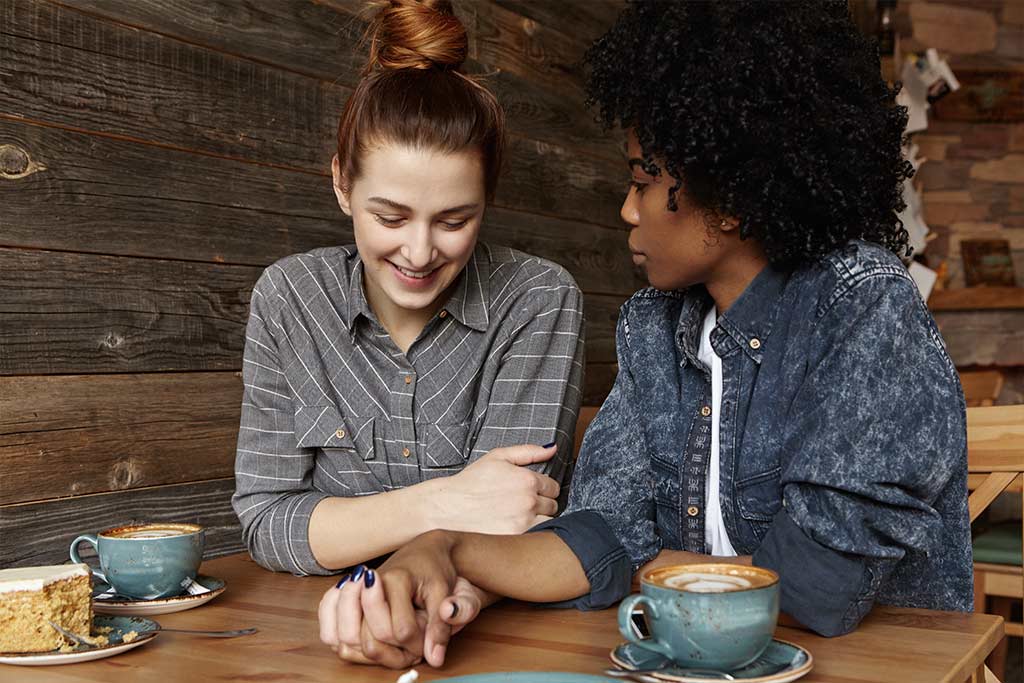
With lesbian loneliness being so prevalent, gay women need to learn ways to manage their feelings of isolation.
Though it’s okay to feel lonely sometimes, there are several helpful steps that lesbians can take to feel less lonely.
For instance, spending time around the queer community and with allies can be incredibly beneficial.
I know that I won’t have to worry about being questioned when I’m engaging with people who accept and love me for who I am.
Overall, I feel much more relaxed when I’m in a supportive environment, and being around other queer people or allies makes it much easier for me to make new connections.
While it’s vital to connect with people who fully support you, it’s important for you to wholly accept your gender identity and sexuality, too.
Some women who are attracted to other women prefer to identify as “queer” rather than “lesbian” due to the term’s non-specific nature, whereas others don’t worry about labels at all.
Bri McCarroll, a couples therapist who identifies as a lesbian, says that accepting yourself doesn’t necessarily mean immediately picking a label for yourself.
“I would encourage [women questioning their sexuality] to be curious about their feelings and thoughts and to not pressure themselves to put on a label and settle in a box,” she tells me.
“Sexuality is on a continuum, so one doesn’t need to be black/white about it.”
Regardless of the name you do — or don’t — give to your orientation, feeling confident in your sexuality will help you to love yourself and feel less lonely in the process.
Struggling to come to terms with her sexuality as a young adult, comedian Kelli Dunham said that recognizing love as the “highest value” in her religion — and realizing how much better she felt when she wasn’t hiding her sexuality — helped her to feel more confident in herself and her identity.
“For me, I knew I could not love people while I was denying my most authentic self,” she said.
“The most loving thing you can do for the people around you and for the world is to live your own truth as honestly and bravely as you can.”
Elizabeth, a writer and editor who, like many queer people, spent years listening to others examine her sexuality, also questioned herself until embracing her sexuality as a young adult.
“My best advice to lesbians or questioning folk struggling with identity is to trust your gut. Listen to your intuition,” Elizabeth tells me.
“People will try to convince you your whole life that you don’t know what you’re talking about, but you do. You know yourself better than anyone else on this earth.”
It can take time to find your people and to learn to love yourself, but ultimately, it’s something worth doing.
Closing Thoughts
For so many lesbians, loneliness isn’t unusual.
Whether you’re unable to find other queer women to connect with, you’re fighting against stigmas about lesbians, or you’re trying to figure out if another woman is attracted to you, it can be hard to feel understood by others.
While you might feel as though you’re the only queer woman who’s ever felt this way, I promise you this:
You’re not.
Your sexuality is a part of you, and just because it’s not as common as heterosexuality doesn’t mean it isn’t normal.
You don’t have to be attracted to men to be a “real woman,” nor do you have to prove yourself to anyone.
Even on days when that familiar loneliness sneaks up on you, remember that who you are is more than enough, and that love — in all its many forms — is a beautiful thing.
Editor’s Note: This article is part of The Roots Of Loneliness Project, the first-of-its-kind resource that comprehensively explores the phenomenon of loneliness and over 100 types we might experience during our lives.
Find Help Now
If you’re struggling with loneliness as a lesbian, we’ve put together resources to meet you wherever you are — whether you want someone to talk to right now, or are looking for longer-term ways to help ease your loneliness.
- Suicide Prevention Lifeline: 1-800-273-TALK (8255); Deaf or hard of hearing dial 711 before the number or connect via online chat
- Resources & Emotional Support For Loneliness
- Volunteer & Pet Adoption Opportunities



